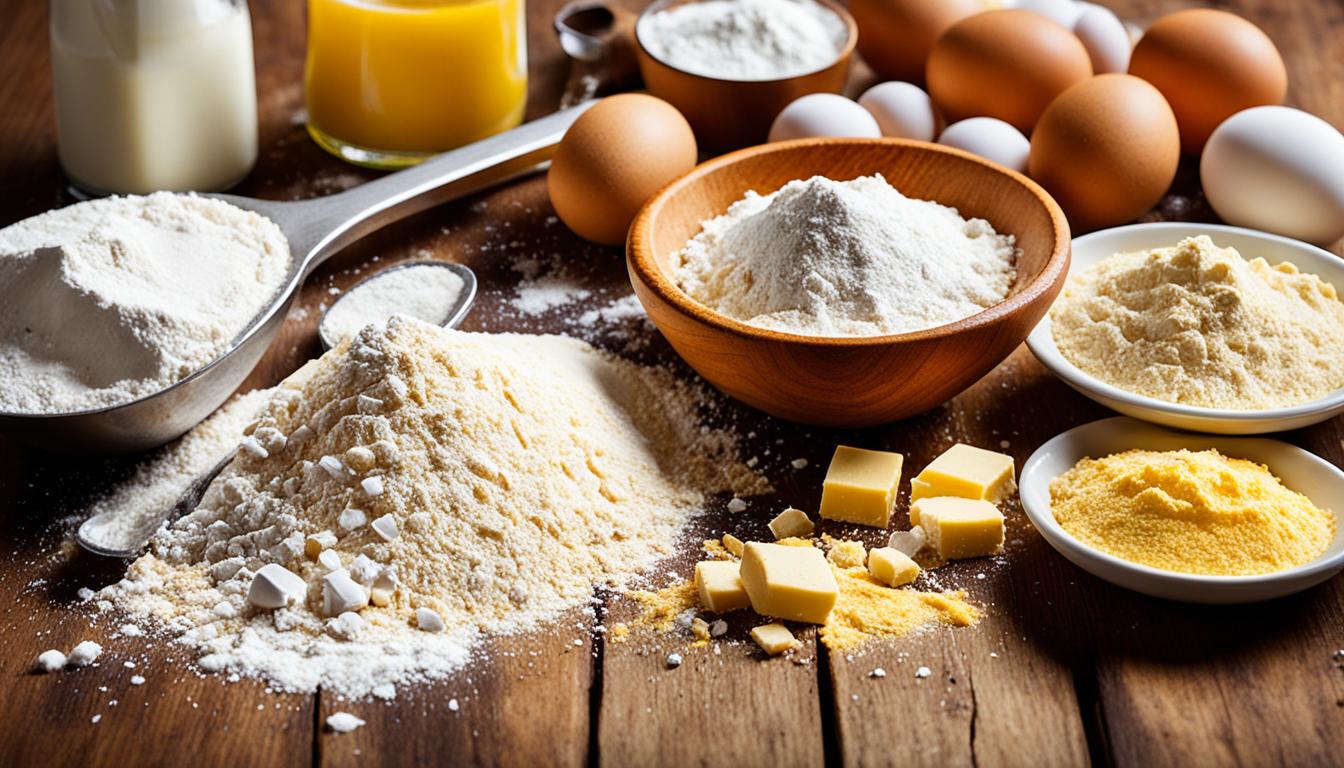When it comes to baking, having the right ingredients is the key to success. Whether you’re an aspiring pastry chef or a weekend baker, stocking your pantry with the essential baking ingredients is crucial for creating delectable treats.
But with so many options out there, how do you know which ingredients are a must-have? We’ve got you covered. In this article, we’ll reveal the basic essential baking ingredients that every baker needs in their arsenal. From the kitchen staples to the must-haves, we’ll guide you through the top ingredients that will elevate your baking game to new heights.
Ready to discover the secrets to baking success? Let’s dive in and uncover the fundamental ingredients that will transform your creations from ordinary to extraordinary. Get your apron on, because we’re about to embark on a baking adventure together!
Essential Types of Flour for Baking
Flour is a fundamental ingredient in baking, providing structure, volume, and texture. All-purpose flour is a versatile option that can be used for various baked goods. However, it’s beneficial to have other types of flour on hand as well.
Bread flour, with its higher protein content, is ideal for yeast breads. The extra protein helps create a stronger gluten network, resulting in a chewy and well-risen loaf. It’s important to note that bread flour may not yield the best results for delicate pastries or cakes.
Cake flour, on the other hand, has a lower protein content, making it perfect for tender and light cakes. The lower protein content reduces gluten development, resulting in a softer, more delicate crumb. Using cake flour in cake recipes will help achieve a fluffy and moist texture.
There are also specialty flours available, catering to specific dietary preferences and needs. Whole wheat flour is a nutritious option that adds a hearty flavor and texture to baked goods. Gluten-free flours, such as almond flour, coconut flour, or rice flour, are great alternatives for those with gluten intolerance or following a gluten-free diet. These specialty flours offer unique flavors and textures while accommodating different dietary restrictions.
Having a variety of flour options in your pantry allows for endless creativity in the kitchen. Experimenting with different types of flour can result in a wide range of flavors and textures in your baked goods. Whether you’re making bread, cakes, or cookies, choosing the right flour can elevate your baking to new heights.
Key Leaveners for Baking
When it comes to baking, leaveners play a crucial role in creating light and airy textures in our favorite treats. Let’s explore the key leaveners that every baker should have in their pantry.
Baking soda, a chemical leavener, is a versatile ingredient that reacts with both acid and heat to produce carbon dioxide bubbles. These bubbles help the dough or batter rise, resulting in soft and fluffy baked goods. It’s commonly used in recipes like quick breads, cookies, and cakes.
Another essential leavener is baking powder. It’s a combination of baking soda, powdered acid, and cornstarch, which helps activate the leavening process. Baking powder creates bubbles when mixed into the batter or dough and additionally when heated during baking. This double action ensures a consistent rise and light texture in a wide range of recipes.
Lastly, yeast is a biological leavener that provides a unique flavor and texture to breads. Unlike chemical leaveners, yeast works more slowly, allowing flavors to develop and resulting in a distinctive aroma. It’s commonly used in bread recipes, where its fermentation process gives the dough its airy structure and delicious taste.
Understanding the role of these leaveners—baking soda, baking powder, and yeast—will help us achieve the perfect rise and texture in our baking creations. So, make sure to stock your pantry with these essentials to achieve bakery-worthy results every time.
